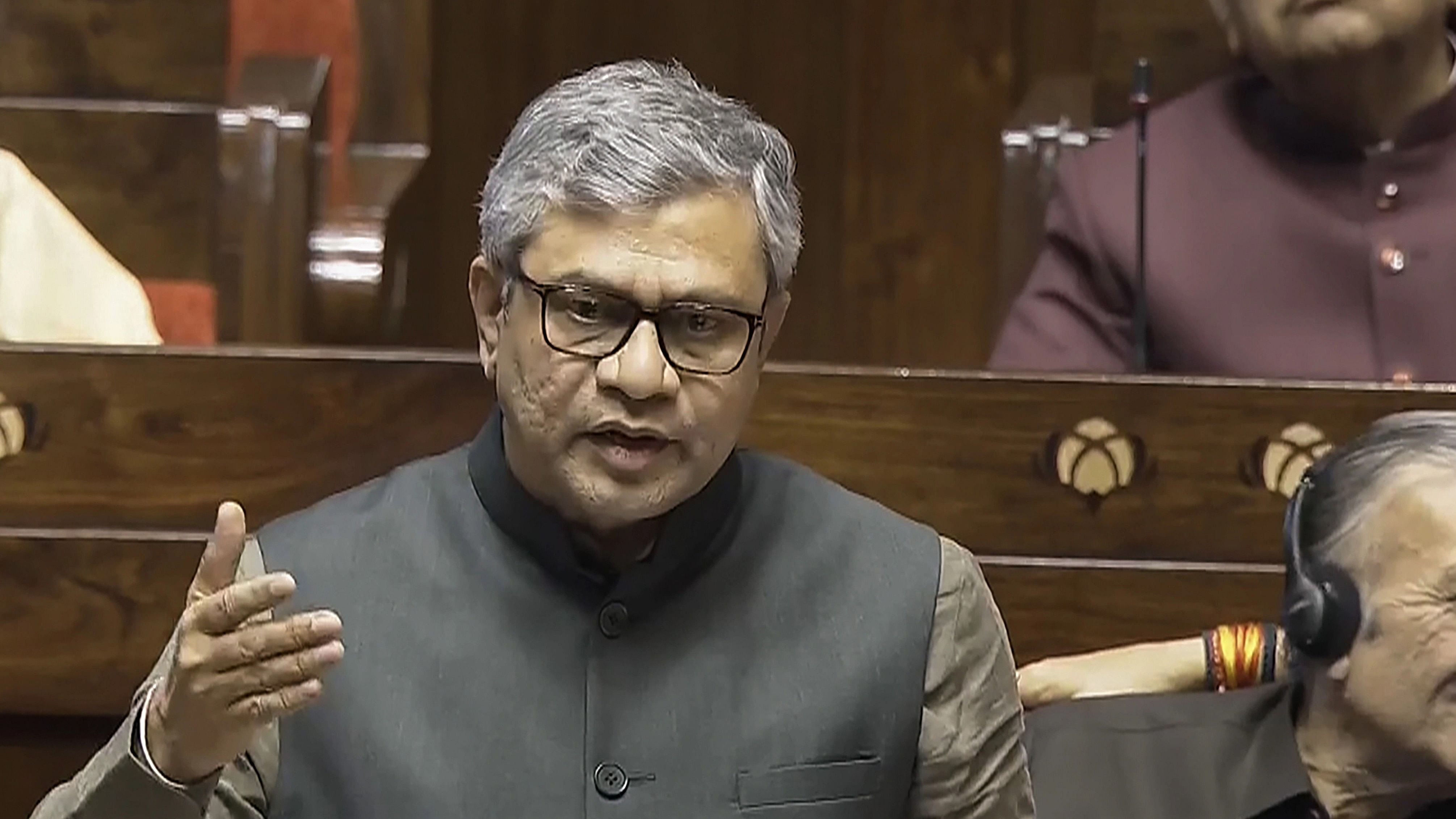
Union Minister Ashwini Vaishnaw speaks in the Rajya Sabha on the first day of the Winter session of Parliament, in New Delhi
Credit: PTI Photo
New Delhi: Communications Minister Ashwini Vaishnaw asserted on Monday that the Post Office Bill, 2023 to amend the 125-year-old Indian Post Office Act is a reflection of how post offices and postal institutions were revived in the last nine years under the NDA's rule.
Moving the Post Office Bill, 2023 to be taken into consideration and passed by the Rajya Sabha, the minister said in the last nine-and-a-half years, postal services, post offices and postmen have been transformed into a service-delivery institution from being merely a mail-delivery mechanism.
At one point, it seemed that the postal services would become irrelevant and especially during the rule of the UPA, there was a situation when post offices had to be phased out, he claimed.
'This new legislation is a reflection of the way post offices and postal institutions have been revived in the last nine years,' the minister said.
In the last nine-and-a-half years, the postal services, post offices and postmen have been transformed into a service-delivery institution from being merely a mail-delivery mechanism, and the post offices have been practically converted into banks, he added.
'From 2004 to 2014, 660 post offices were closed but from 2014 to 2023, around 5,000 post offices were opened and about 5,746 new ones are in the process of being opened,' Vaishnaw said.
Further, 1.6 lakh post offices have been connected with core-banking and digital-banking facilities, he said, adding that in accordance with Prime Minister Narendra Modi's vision, 434 post offices have processed more than 1.25 crore passport applications and 13,500 'post office Aadhaar Seva Kendra' have been opened.
Vaishnaw also pointed out that the India Post Payment Bank, a big medium of converting the postal system into a banking system, has opened 3.5 crore accounts for women.
The minister also cited examples of how people from far-flung areas are using the postal services to export their home-made products abroad.
He said the entire focus of the new legislation is to aid in the shift from mail delivery to service delivery and from post office to banking services.
The bill seeks to repeal the Indian Post Office Act, 1898 and consolidate and amend the law relating to post offices in the country.
According to the statement of objects and reasons of the bill, over the years, the services available through post offices have diversified beyond mail and the post office network has become a vehicle for delivery of a variety of citizen-centric services. It has necessitated the repeal of the Indian Post Office Act, which was enacted in 1898 to primarily address the mail services provided through post offices.
The enactment of a new law is with a view to govern the functioning of the post offices in the country and provide for a simple legislative framework to facilitate the evolution of the post offices into a network for delivery of citizen-centric services.
The bill seeks to empower the director general of postal services to frame regulations in respect of activities necessary to provide those services and fix the charges for such services.
Under the legislation, the Centre may, by notifications, empower any officer to intercept, open or detain any item in the interest of State security, friendly relations with foreign States, public order, emergency or public safety or upon the occurrence of any contravention of any of the provisions of any law in force for the time being.